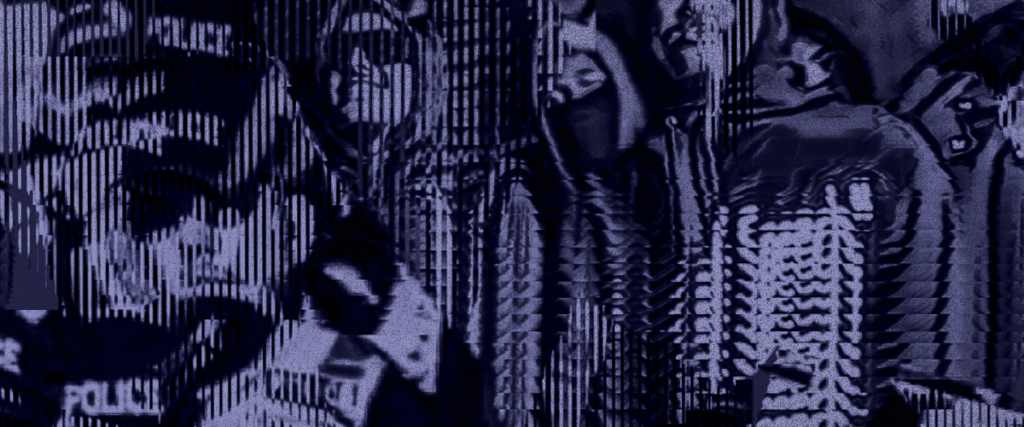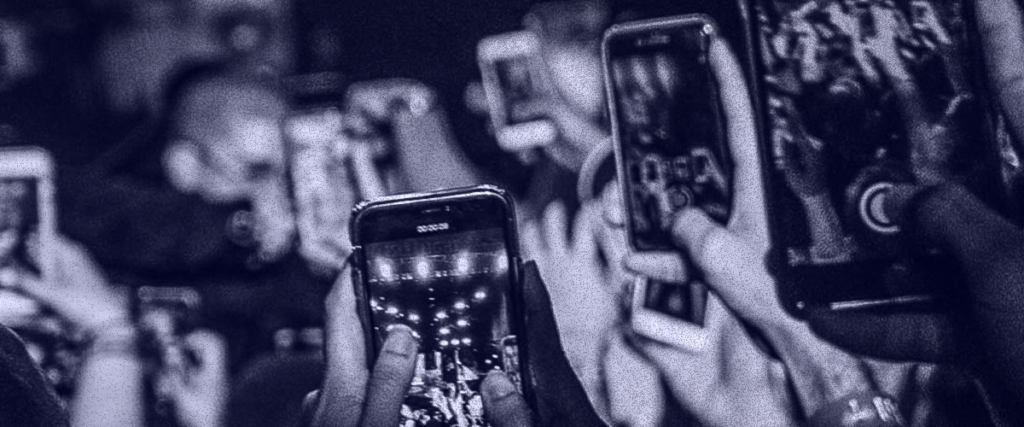
What’s wrong with ‘gang’ surveillance in the UK?
Just over one year ago, ten young Black men were charged with conspiracy to murder and conspiracy to GBH in Greater Manchester. The prosecution arguing the case said that they were part of a gang and linked them to the killing of a man they framed as revenge for the death of their friend.
The Manchester 10
A key part of their evidence was the content of a Telegram chat convened in the wake of this friend’s death where the ten, who had loose associations and mainly connected by grief, vented their pain.
No one mentioned in the group’s conversation came to any harm. However, the chat, references to drill music and social media posts were woven together to form the ‘gang’ narrative, alongside other disparate information, such as ‘blue clothing’, argued to be the gang colours.
Now, convicted of being guilty by association, they will collectively serve 131 years, despite most of the boys not being involved in any harm.
open letter to andy burnham
Signed by Open Rights Group, Kids of Colour, Liberty, Amnesty International UK, StopWatch, FairTrials, MedAct, Northern Police Monitoring Group, BLAM, Bristol CopWatch, 84Youth, United Borders, JENGBA, UNJUST, and Transform Justice.
Download nowJustice/Injustice
Doctrines like conspiracy, such as joint enterprise, disproportionately impact Black people. Similar cases with White defendants have seen more leniency. What’s more, the common law principle has been misused, according to the UK’s highest court.
Some in the youth justice or youth work sector have described in conversations with ORG how the ‘gang narrative’ is sometimes created when there is no evidence. Video footage of the crime, for instance, means there is no need to portray those on trial in such a way.
Where that evidence is lacking, disparate information is pieced together – sharing music videos, lyrics, social media posts showing ‘gang-like’ behaviour e.g. posing with money, chats, clothing in colours deemed to be ‘gang colours’ etc. The use of such content is arguably a misuse of digital evidence.
The resulting miscarriages of justice, as we believe has occurred with the Manchester 10 do nothing to serve society. They entrench racism and deny our communities of the talent and potential of the young people who could have contributed to making it better.
It is a wonder how the country’s justice arm is embarking on a system where a significant proportion of UK constituents are pre-emptively viewed as a threat rather than as subjects to be protected
Sophia Akram, Open Rights Group
The pre-criminal space
The use of personal data, content and personal conversations portrays a worrying trajectory of increasing data weaponisation by law enforcement and the criminal justice system. We only need to look to the Met Police’s Gangs Matrix for the potential harms, which is being overhauled as a result of a ruling last year. However, ‘Gangs Databases’ are in existence across the country and as reported last year, Project Alpha is another Met project involving mining young people’s content for risk profiling.
Pre-crime profiling is also occurring in tandem with prosecutorial trends, such as conspiracy, joint enterprise or ‘attempt to’ charges that ends up with individuals being criminalised on the basis of pre-emption.
It is a wonder how the country’s justice arm is embarking on a system where UK constituents from some communities are pre-emptively viewed as a threat rather than as subjects to be protected.
That’s why we have written to Greater Manchester Mayor Andy Burnham, Chief Constable Stephen Watson, Chair of the Police and Crime Panel Janet Emsley, and Deputy Mayor for Policing Kate Green. We are asking for a review of the police’s current policies over digital evidence, to meet the youth advocacy groups and organisations involved in the case of the Manchester 10 and hear their concerns to learn lessons and reform the harmful practices that were evident in the case, and to confirm they are not operating initiatives like Project Alpha.
How you can help
- Write to Andy Burnham repeating our asks – for the relevant personnel to review the police’s current policies over digital evidence.
- Write to your MP raising concern about the increasing use of data to risk profile individuals and the CPS’s use of content, including drill, rap or grime lyrics as serious evidence of intent.

07 Oct 2022 By Sophia Akram
Young people are being criminalised for content
